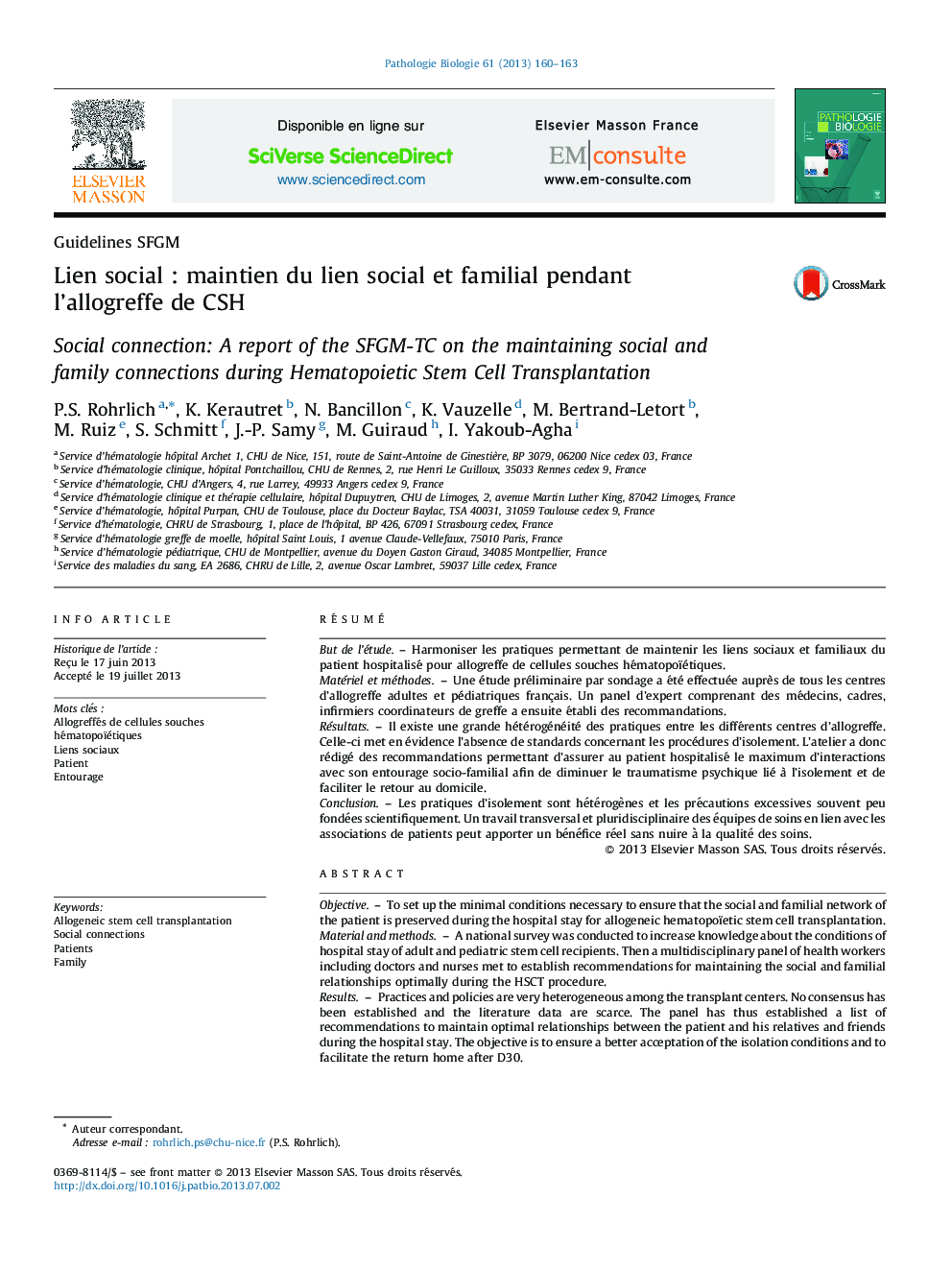| کد مقاله | کد نشریه | سال انتشار | مقاله انگلیسی | نسخه تمام متن |
|---|---|---|---|---|
| 4136025 | 1271891 | 2013 | 4 صفحه PDF | دانلود رایگان |

RésuméBut de l’étudeHarmoniser les pratiques permettant de maintenir les liens sociaux et familiaux du patient hospitalisé pour allogreffe de cellules souches hématopoïétiques.Matériel et méthodesUne étude préliminaire par sondage a été effectuée auprès de tous les centres d’allogreffe adultes et pédiatriques français. Un panel d’expert comprenant des médecins, cadres, infirmiers coordinateurs de greffe a ensuite établi des recommandations.RésultatsIl existe une grande hétérogénéité des pratiques entre les différents centres d’allogreffe. Celle-ci met en évidence l’absence de standards concernant les procédures d’isolement. L’atelier a donc rédigé des recommandations permettant d’assurer au patient hospitalisé le maximum d’interactions avec son entourage socio-familial afin de diminuer le traumatisme psychique lié à l’isolement et de faciliter le retour au domicile.ConclusionLes pratiques d’isolement sont hétérogènes et les précautions excessives souvent peu fondées scientifiquement. Un travail transversal et pluridisciplinaire des équipes de soins en lien avec les associations de patients peut apporter un bénéfice réel sans nuire à la qualité des soins.
ObjectiveTo set up the minimal conditions necessary to ensure that the social and familial network of the patient is preserved during the hospital stay for allogeneic hematopoïetic stem cell transplantation.Material and methodsA national survey was conducted to increase knowledge about the conditions of hospital stay of adult and pediatric stem cell recipients. Then a multidisciplinary panel of health workers including doctors and nurses met to establish recommendations for maintaining the social and familial relationships optimally during the HSCT procedure.ResultsPractices and policies are very heterogeneous among the transplant centers. No consensus has been established and the literature data are scarce. The panel has thus established a list of recommendations to maintain optimal relationships between the patient and his relatives and friends during the hospital stay. The objective is to ensure a better acceptation of the isolation conditions and to facilitate the return home after D30.ConclusionSince there is no established scientific background for drastic isolation conditions, a multi-disciplinary approach in relationship with patients associations should allow softening of the procedures without impairing the quality of care.
Journal: Pathologie Biologie - Volume 61, Issue 4, August 2013, Pages 160–163